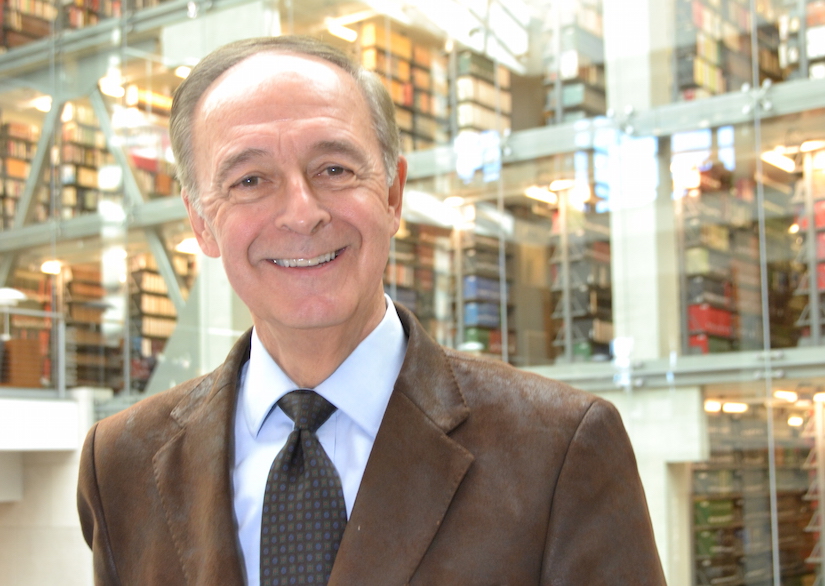Passing the baton
William J. Martin II concludes his 6-year deanship inspired and hopeful.
By Erinn Aulfinger and Steve Barrish

When he became the College of Public Health dean in 2013, William J. Martin II saw new partnerships as the key to a better future for Ohio. As he retires this summer, Martin reflects on the unique position the college is in to improve health in Ohio and beyond.
During his seven-year tenure at the National Institutes of Health (NIH), Martin helped advance scientific research related to household air pollution from indoor cooking fires — exposure that results in nearly 4 million deaths each year to mostly women and children. He was also the NIH principal investigator of the Head Off Environmental Asthma in Louisiana (HEAL) study, which focused on childhood asthma in post-Hurricane Katrina New Orleans. Both of these major initiatives required new partnerships with communities, government, businesses and academia to build new and creative solutions to improve health.
In 2013, infant mortality in Ohio was nearly the worst among all 50 states. With the rapidly escalating opioid crisis, Ohio was leading the nation in the number of opioid overdose deaths. How could a small and young college address such issues? “There were really limited options for us,” Martin says. “We needed all of the colleges at Ohio State to engage in public health. That was our goal.”
Growing the faculty and expanding research in the college were also essential. Since 2013, the college recruited 31 new faculty members and received more than $50 million in research funding. Additionally, the college was assigned a pivotal role in leading Ohio State’s response to the opioid crisis. Under Martin’s leadership, the college had to determine how to measure the impact of new faculty and new research funding in public health.
“The translation of public health research into practice differs from medicine and other health disciplines, where translation results in a new drug or device,” Martin explains. “In public health, a new discovery or research finding often requires translation into new public policy.”
In his career, Martin saw first-hand the inner workings of how public policy is shaped, particularly when he served as a health policy fellow to Sen. Edward Kennedy (D-MA) in the mid-1990s.
To introduce students to the intersection of public health and policy, Martin twice led groups of up to 24 CPH students on trips to Washington, D.C. The students met face-to-face with legislators and administrators, learning first-hand advocacy and public policy.
“In three days, we had the opportunity to see the students transform themselves and perform,” Martin says. “I wanted them to get an appreciation for how hard public policy and advocacy is, and a sense of what their role can be in the future.”
As we continue making progress improving public health in Ohio, a new dean will receive the baton in summer 2019. The end of his tenure leaves Martin reflecting on his transition to retirement.
“My wife and I love Columbus and Ohio State,” Martin says. “The students, staff and faculty are inspiring everyday as they seek new approaches and new partnerships to advance public health in Ohio and beyond. It is an exciting time to be here, as Ohio State can really change the world. Go Bucks!”
About The Ohio State University College of Public Health
The Ohio State University College of Public Health is a leader in educating students, creating new knowledge through research, and improving the livelihoods and well-being of people in Ohio and beyond. The College's divisions include biostatistics, environmental health sciences, epidemiology, health behavior and health promotion, and health services management and policy. It is ranked 22nd among all colleges and programs of public health in the nation, and first in Ohio, by U.S. News and World Report. Its specialty programs are also considered among the best in the country. The MHA program is ranked 5th and the health policy and management specialty is ranked 21st.